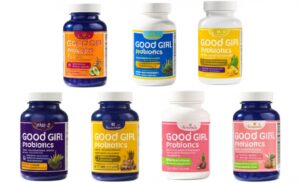Let’s talk about something essential but often overlooked—vaginal health. If you’re dealing with recurring yeast infections, bacterial vaginosis, or just want to keep things balanced down there, probiotics could be your best friend. But with shelves full of different strains and brands, how do you know which probiotic is right for you? Best Macrobiotic for Women
This guide dives deep into the best probiotics for women’s vaginal health, how they work, what to look for, and which products stand out. Whether you’re in your 20s or post-menopausal, there’s something here for you.
What Are Probiotics?
Definition and Role in the Body
Probiotics are live bacteria and yeasts that are good for your health, especially your digestive and vaginal systems. While the term “bacteria” might sound scary, your body is full of bacteria, both good and bad.
Types of Probiotics
The most beneficial strains for women usually fall under the Lactobacillus family, such as:
Lactobacillus rhamnosus
Lactobacillus reuteri
crispatus
Lactobacillus acidophilus
These strains help keep the vaginal microbiome balanced by crowding out harmful bacteria.
How Probiotics Support Vaginal Health
Maintaining Balance
A healthy vagina naturally contains a mix of bacteria dominated by lactobacilli. These good bacteria help maintain an acidic environment (pH around 3.8 to 4.5), which prevents the overgrowth of yeast and bad bacteria.
Prevention of Infections
Probiotics:
Produce lactic acid to lower vaginal pH
Prevent bad bacteria and yeast from sticking to vaginal walls
Strengthen the vaginal barrier against infections like BV and UTIs
Signs You Might Need a Vaginal Probiotic
You might benefit from a vaginal probiotic if you experience: Best Macrobiotic for Women
Frequent urinary tract infections (UTIs)
Bacterial vaginosis (BV) or yeast infections
Antibiotic use that disrupts gut and vaginal flora
Hormonal shifts from pregnancy, birth control, or menopause
Vaginal dryness, itching, or odor
What Makes a Good Vaginal Probiotic?
Not all probiotics are created equal. Here’s what to look for:
Strain Specificity
Look for clinically studied strains like:
Lactobacillus rhamnosus GR-1
reuteri RC-14
These strains have proven effectiveness in restoring and maintaining vaginal flora.
CFUs (Colony Forming Units)
A good vaginal probiotic should contain at least 1 to 10 billion CFUs per serving. More isn’t always better, but low CFUs might not be effective.
Delivery Method
Capsules: Most common and easy to take
Suppositories: Directly placed in the vagina
Powders or liquids: Great if you prefer mixing with food or drinks
Top Recommended Probiotics for Vaginal Health
1. Renew Life Women’s Care Probiotic
25 billion CFUs
12 diverse strains, including L. rhamnosus and L. reuteri
Targets vaginal, digestive, and immune health
2. Garden of Life Dr. Formulated Women’s Probiotic
50 billion CFUs
16 strains
Includes prebiotic fiber for gut support
3. Culturelle Women’s Healthy Balance
Contains 5 clinically proven strains
Includes L. crispatus for enhanced vaginal flora
Great for daily maintenance
4. Jarrow Formulas Fem-Dophilus
Features the famous GR-1 and RC-14 strains
Clinically backed
Excellent for yeast and BV prevention
5. Love Wellness Good Girl Probiotics
1 billion CFUs
Formulated specifically for vaginal and urinary health
Clean, gentle ingredients

Natural Sources of Probiotics
Not a fan of pills? Try adding these probiotic-rich foods into your daily routine:
Yogurt with live cultures
Kefir (fermented milk drink)
Kimchi, sauerkraut, and miso
These can boost your gut and vaginal flora naturally.
When and How to Take Probiotics
Best Time: Usually on an empty stomach in the morning
With Food: Some are more effective with a meal
Consistency Matters: Take daily for best results
Time to Results: Typically 1–4 weeks for noticeable changes
Can You Take Probiotics with Antibiotics?
Absolutely—just space them out. Take your probiotic 2-3 hours after your antibiotic to help restore your gut and vaginal flora.
Post-antibiotic use is one of the most important times to supplement with probiotics. Best Macrobiotic for Women
Are Vaginal Probiotics Safe?
Generally, yes. However, some people may experience:
Gas or bloating
Mild digestive changes
Rare allergic reactions
Pro tip: Always check with your healthcare provider if you’re pregnant, breastfeeding, or have a compromised immune system.
Probiotics vs. Prebiotics – What’s the Difference?
biotics = Good bacteria
Prebiotics = Food for probiotics
Like fiber from bananas, oats, and onions helps your probiotics thrive. Look for synbiotic products that include both.
Probiotics During Pregnancy and Menopause
Pregnancy
May reduce the risk of BV and yeast infections
Some strains may lower inflammation
Menopause
Hormonal changes often disrupt vaginal flora
Probiotics can ease dryness, odor, and recurring infections
Always choose strains and brands tested for safety during pregnancy or menopause.
Common Myths About Vaginal Probiotics
Myth 1: All probiotics work the same
Fact: Only certain strains target vaginal health.
Myth 2: Yogurt is enough
While helpful, most store-bought yogurts don’t contain enough live bacteria to fully restore vaginal balance.
Myth 3: You’ll see results overnight
Probiotics can take a few weeks to balance your system.
How to Read Probiotic Labels Like a Pro
Check for specific strains, not just “Lactobacillus”
Look for the CFU count
Check expiry date and storage info
Seek third-party certifications like NSF or USP
Lifestyle Tips to Support Vaginal Health
Wear cotton underwear and avoid tight clothes
Avoid douches, scented soaps, and bubble baths
Stay hydrated and eat a balanced diet
Manage stress, which affects hormone levels and immune health

Conclusion
Your vaginal health is just as important as any other part of your well-being. Probiotics, whether through supplements or food, offer a safe, natural way to promote balance and prevent infections.
Start by identifying your symptoms, picking a high-quality product with proven strains, and sticking to a consistent routine. With the right probiotic, you can feel more balanced, confident, and comfortable in your own body. Best Macrobiotic for Women
FAQs
1. Can I take probiotics every day?
Yes! Most women take probiotics daily for ongoing support. Just be consistent.
2. Will probiotics cure BV or yeast infections?
They may help prevent or reduce symptoms, but they’re best used alongside proper medical treatment.
3. Are there side effects from taking vaginal probiotics?
Some women experience mild bloating or gas initially. It usually passes in a few days.
4. Do I need a prescription for vaginal probiotics?
Nope. Most are available over the counter or online.
5. Can probiotics help with vaginal odor?
Yes, by balancing bacteria and lowering pH, they can reduce odor over time.

